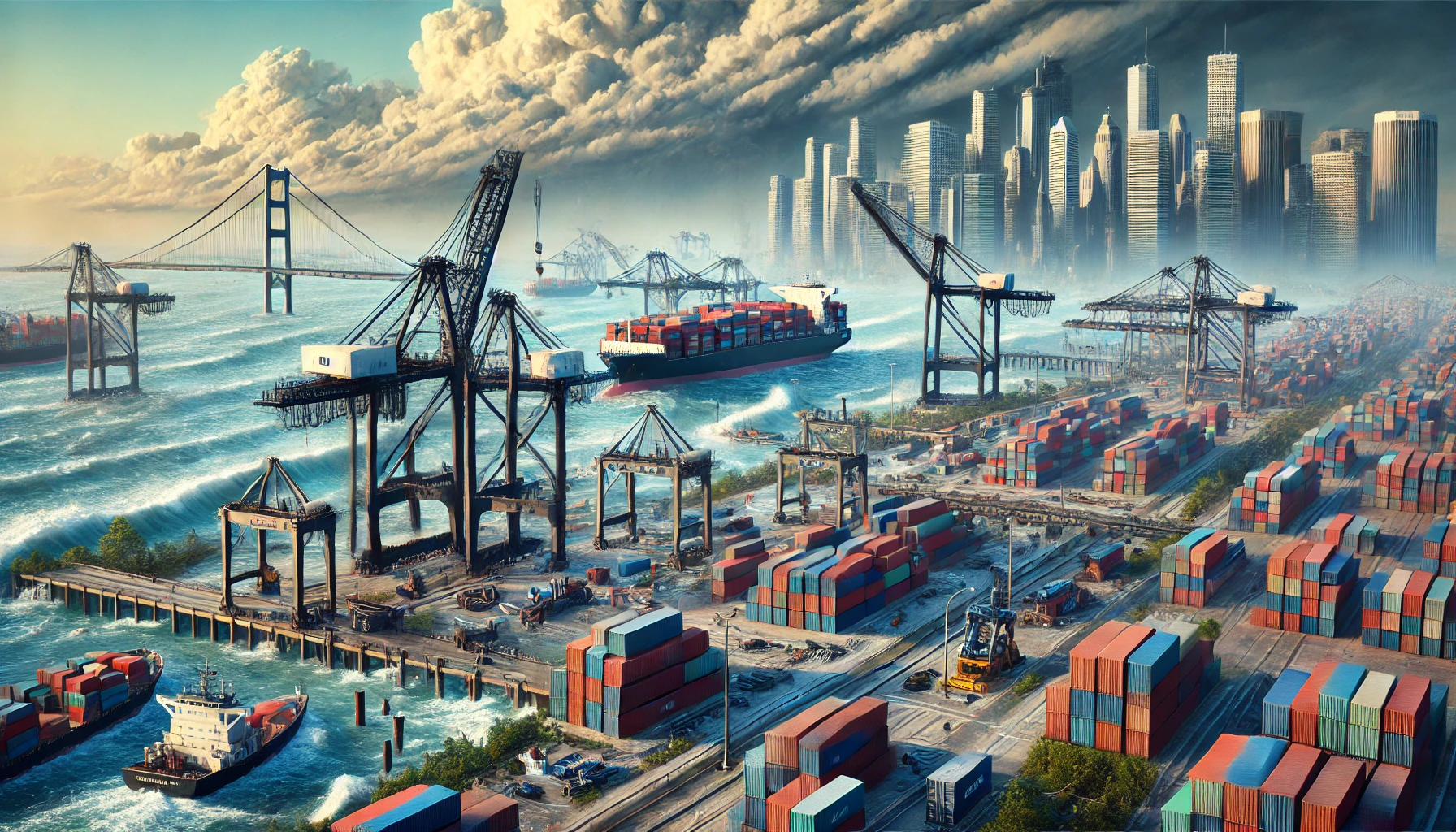The Impact of the ILA Strike and Hurricane Helene on U.S. Supply Chains!

Container ships idle off U.S. coasts during the ILA strike, while Hurricane Helene’s damage disrupts port operations and supply chains.
The Impact of the ILA Strike and Hurricane Helene on U.S. Supply Chains!
The recent strike by the International Longshoremen’s Association (ILA) has caused significant disruptions at major U.S. ports, notably affecting the supply chain. This strike, the largest in nearly 50 years, has resulted in over 45 container vessels being anchored outside East Coast and Gulf Coast ports, unable to unload their cargo. The ILA initiated the strike after negotiations with the United States Maritime Alliance (USMX) failed, primarily due to disputes over wage increases and port automation projects.
Economic Ramifications
The economic impact of this strike is profound. Each day of port closure costs the U.S. economy approximately $5 billion. Furthermore, the backlog from a single day can take up to five days to clear, leading to product shortages and rising inflation, particularly affecting consumer goods like food and auto parts6. The situation is exacerbated by Hurricane Helene, which has caused significant infrastructural damage, further straining production and distribution networks.
Industry-Specific Disruptions
Several industries are experiencing severe disruptions due to these events:
Automotive Sector: Auto manufacturers face delays in receiving essential parts, slowing production lines and potentially leading to temporary shutdowns.
Technology Companies: Firms dependent on imported components struggle to maintain production schedules, risking delays in product launches.
Retail Sector: Retailers are grappling with supply shortages, impacting inventory levels ahead of the holiday season.
Labor Market Implications
The strike’s ripple effect extends to the labor market. With ports closed, trucking companies and warehouse operators face reduced demand for their services, leading to temporary layoffs and reduced working hours for employees. This situation adds economic strain on workers, especially those in lower-income brackets who are most vulnerable to financial instability.
Automation Concerns
A central issue driving the strike is the fear of automation. Dockworkers are concerned about automated cranes and robotic loading machines potentially replacing human labor. While these technologies offer efficiency gains, they threaten job security for thousands of dockworkers.
For more insights on how supply chain disruptions affect various industries, visit our Supply Chain Insights page.
Reference
For a broader perspective on the economic implications of labor strikes, refer to this AP News article.
In conclusion, the ongoing dockworker strike and recent hurricane have created a perfect storm of supply chain disruptions with far-reaching effects on various industries and the overall economy. Resolving these labor disputes promptly is crucial to mitigate further economic damage.
How have you been affected by these events?
What do you foresee happening in the next six months?

